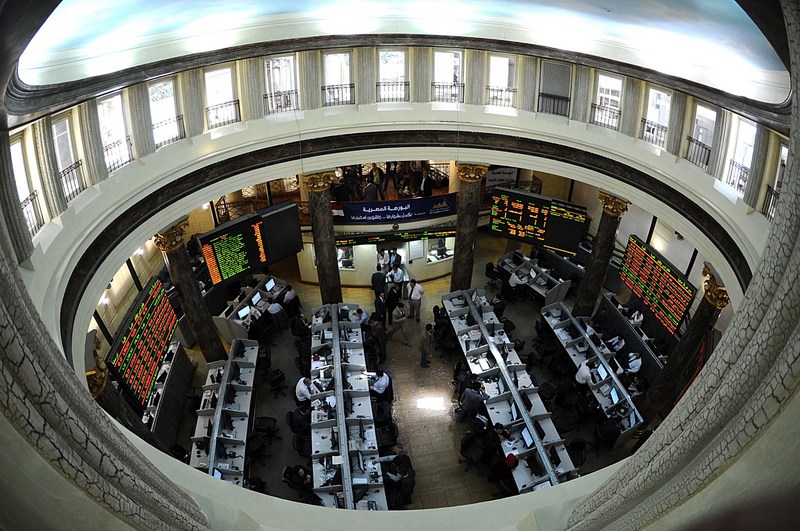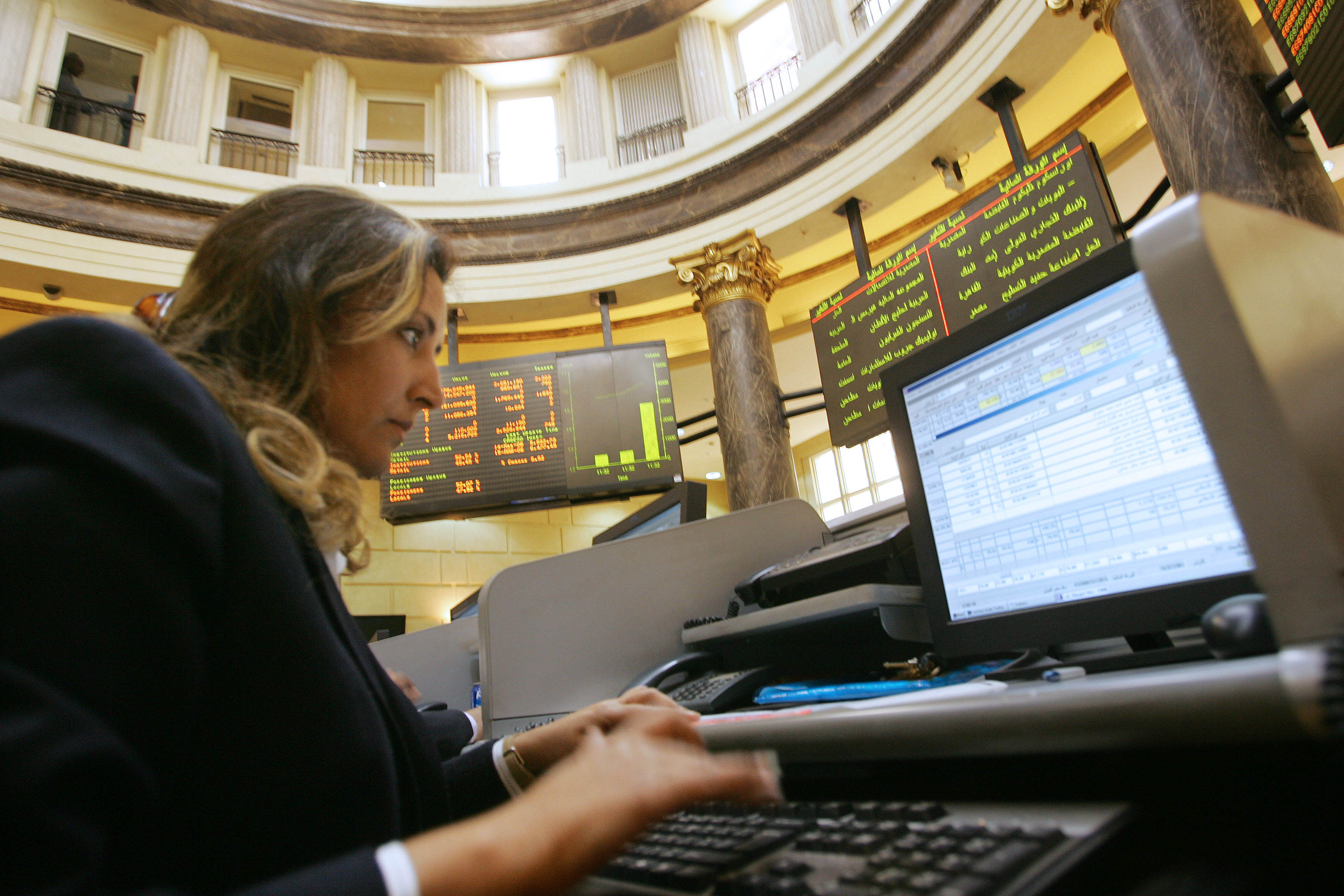With the Central Bank of Egypt’s (CBE) decision to cut the interest rates by 1% and a quelling of political tensions witnessed by the country recently, optimism returned once again to dominate the appetite of dealers in the stock market. This coincides with expectations that this week’s transactions should see a marked improvement from the panic and random selling on the Egyptian Exchange (EGX) during the first and mid-week trading sessions last week.
The EGX indices in the past two weeks were able to compensate part of the losses suffered in the previous sessions, with market capitalisation losing about EGP 42bn at the close of the week’s trading.
The main index of the EGX in the first three sessions lost more than 1,500 points, under pressure from external and internal concerns.
The EGX Chairperson Mohamed Farid said there were no events that require the decline of market indicators, describing the stock market fall during the first three sessions of last week as “an unjustified and meaningless reaction at the level of financial markets.”
Last week, the EGX30 benchmark lost about 6%, to close at 13,857 points, against 14,739 points in the week before last, losing 880 points.
The total value of cash dividends rose from EGP 9.9bn to EGP 30bn during the period from 2015 until last year, Farid said.
Moreover, Aboubakr Emam, head of the research sector at Sigma Investment Bank, believes that the CBE’s decision to cut interest rates by 1% will revive the stock market this week, especially with the majority of stocks currently declining. He said the EGX is likely to gain with good trading volumes, especially with the expected improvement of the foreign investment climate with the reduction of the interest rate.
He expected the CBE to continue its policy of cutting interest rates during its next meeting and in general during the year, with the next decline likely to be within the range of 100 basis points, which will reflect positively on encouraging companies to resort to fixed income instruments in borrowing that will be reflected in the value of their shares. Each new rate cut will contribute to the promotion of capital market investments, which will become more attractive.
The Central Bank of Egypt (CBE) decided to reduce the overnight deposit and lending rate and its main operation rate by 100 basis points to 13.25%, 14.25% and 13.75%, respectively.
The CBE also decided to cut the credit and discount rate by 100 basis points to 13.75%.
Meanwhile, Mohamed Abu Basha, director and head of macroeconomic analysis, EFG Hermes Research, said that the CBE’s decision was largely expected, and that the monetary easing cycle had not yet reached the end. He expected a further rate cut of 1-1.5% by the end of the fiscal year.
He added that inflation could reach levels of 4% and 5% in the coming months before ending the year at 8% and 9% levels.
Abu Basha said the decision stimulates companies to move to investment borrowing, which supports growth rates during the coming period, and may affect the exchange rate, but only marginally.
He added that the decision will also positively affect the stock market transactions. On the investment side, the reduction of interest rates reduces the attractiveness of investment in fixed income instruments, while all investment in the stock market is likely to be the best returnee, but once the stability of the stock market returns.
The CBE cut interest rates for the third time this year; cutting them in February and August.
The CBE’s decision was in line with analysts’ expectations of cutting interest rates on the back of Egypt’s annual inflation decline to its lowest level since 2013, in addition to the global trend to cut interest rates, most notably the United States amid the global economic downturn.
The EGX30 index closed at 13,857.12 points, recording a decline of 6%. The EGX70 index posted 7.37% loss concluding the period at 499.82 points, while the S&P index declined by 6.44% and concluded the period at 2,046.77 points.
The EGX30 Capped index declined by 6.59% and concluded at 16,710.3 points, while the EGX100 index declined by 6.96% and concluded the period at 1,339.59 points.
The total market capitalisation reached EGP 695.8bn at the end of period, representing a decrease of 5.72% over the last week.
The total value traded was recorded at EGP 9.6bn, while the total volume traded reached 1,415m securities and executed over 137,000 transactions last week.
For the week before last, the total value traded recorded EGP 12.5bn, while the total volume traded reached 1,029m securities executed over 116,000 transactions.
Stocks trading accounted for 52.22% of the total value traded of the main market, while the remaining 47.78% were captured by bonds over the last week.
Egyptian investors accounted for 64.3% of the value traded in listed stocks after excluding deals during the period. Foreigners accounted for 26.8%, while Arabs captured 8.8%. Foreigners were net sellers, with a net of EGP 190.4m, and Arabs were net buyers, with a net of EGP 169.2m, after excluding deals in listed stocks.
Since the beginning of the year, Egyptians represented 66.2% of the value traded in listed stocks after excluding deals, foreigners accounted for 24.7%, while Arabs captured 9.0%. Foreigners were net sellers by EGP 1,663.2m, and Arabs were net sellers by EGP 570.1m, after excluding deals in listed stocks from the start of this year.




